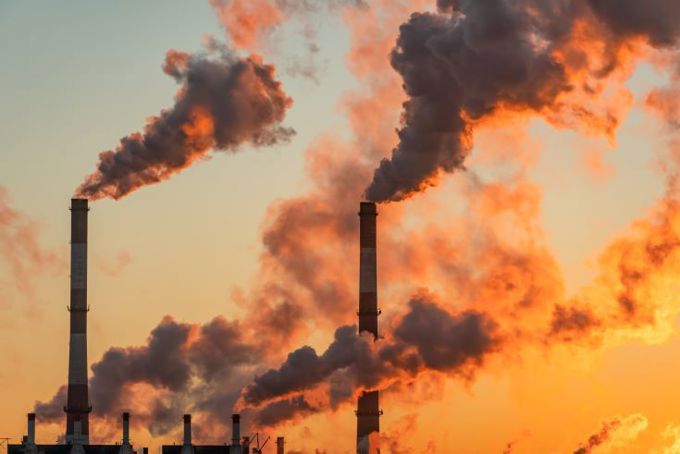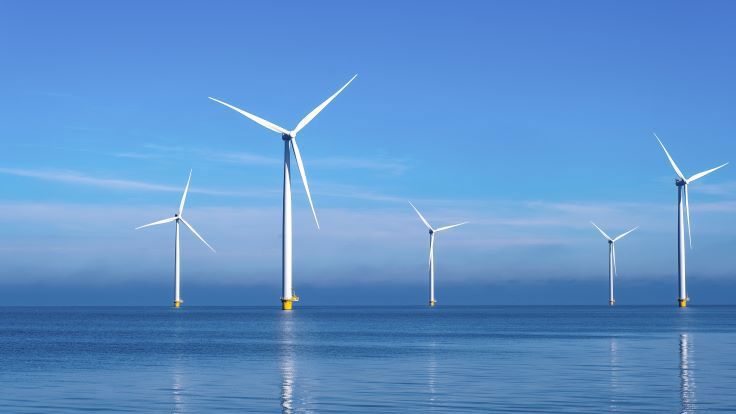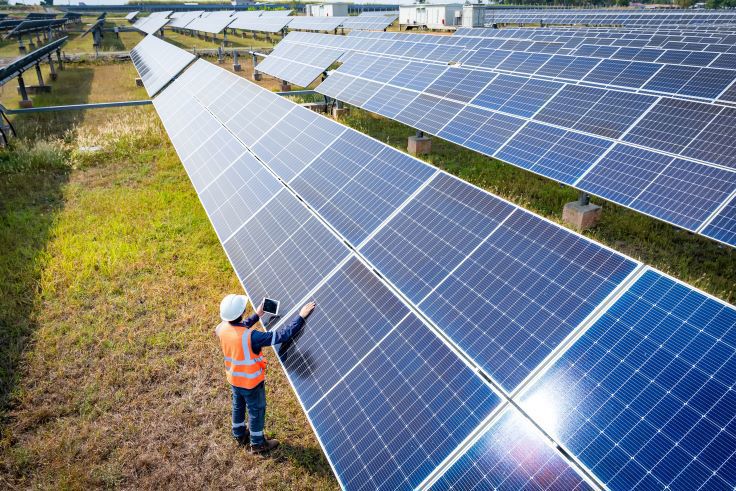
The Virginia Clean Economy Act Requires Most of Virginia’s Coal-Fired and Oil-Fired Electricity Generating Facilities to be Retired by December 31, 2024
The Virginia Clean Economy Act Flourishes Under Democrats and Withers When Republicans Are in Charge
As we look ahead to the New Year, this is a good time to ask ourselves what change of any significance will take place in 2024? The Virginia Clean Economy Act (“VCEA”) provides one example. Within the Act there is the requirement that most of Virginia’s coal-fired and oil-fired electricity generating facilities be retired by December 31, 2024. And, in addition, it is unclear whether the Governor will succeed in his push to remove Virginia from the Regional Greenhouse Gas Initiative.
Virginia’s 2019 election gave Democrats a majority in the House of Delegates and in the Senate. The election brought about single-party control since the state elected a Democrat as its Governor in 2017. This political alignment produced a flurry of legislation in the 2020 session of the Virginia General Assembly with no bill being more ambitious than the Virginia Clean Economy Act (“VCEA”).
Why Does Climate Change Matter in Virginia?
Climate change due to global warming is a consequential issue in Virginia.
Sea level rise and flooding are major issues in southeastern Virginia, especially for those living in Hampton Roads, home to the two most-populated cities in the State (Virginia Beach and Chesapeake). “Sea levels are rising faster in Norfolk than anywhere else on the East Coast, driven by a combination of warming oceans and sinking land in the region.” (View source here (site visited Dec. 11, 2023)). So-called “sunny day” flooding (also called “high tide flooding” or “nuisance flooding”) are very much on the rise in the cities of Hampton Roads (View source here (site visited Dec. 11, 2023)). Virginia’s agricultural industry faces threats from extreme weather, heavy rain and longer periods of drought. Virginians of all stripes face the danger posed by extreme storms (to include hurricanes and tornadoes), along with the increasing number of unpleasantly hot days, and the increase in the risk of heat stroke and other heat-related illnesses.
Carbon dioxide, formed from the combustion of fossil fuels, is the main heat trapping gas. Reducing carbon dioxide emissions is a key element in the fight against global warming.

Offshore windmill farm. Shutterstock: Fokke Baarssen
Electricity Generating Facilities and the Transportation Sector Are the Main Sources of Carbon Dioxide Emissions in Virginia
According to the U.S. Energy Information Administration, about 33% of the carbon dioxide emitted in the United States comes from the burning of coal, natural gas or petroleum to generate electricity (View source here (site visited Dec. 11, 2023)). Emissions from electricity generating facilities are a major contributor to global warming in the U.S., second only to emissions from transportation, with transportation being responsible for 38% about of the carbon dioxide emissions in the U.S. (View source here (site visited Dec. 11, 2023)). Together, the electricity generating facilities, along with the transportation sector of the economy, are responsible for more than 70% of the carbon dioxide emissions in Virginia. The VCEA aims to reduce the carbon dioxide emissions from electricity generation facilities in Virginia. The federal Inflation Reduction Act, enacted in August 2022 (Pub. L. No. 117-169, 136 Stat. 1818 (Aug. 16, 2022)) looks to dramatically reduce emissions from the transportation sector of the U.S. economy (View source here (site visited Dec. 11, 2023)) by, among other things, incentivizing the American consumer to replace her gas-burning vehicle with an electric vehicle and by providing funding for the installation of 500,000 electric vehicle charging stations nationwide.
How the VCEA Reduces Carbon Dioxide Emissions in Virginia
The VCEA seeks to end the burning of fossil fuels (such as coal, natural gas and oil) at all of the electricity generating facilities in Virginia, on a phased schedule, with rolling milestones that extend through 2045 and 2050. The “Renewable Portfolio Standard”, or “RPS”, is the primary tool used by the Act to bring about this result. The RPS requires that a specified percentage of the electricity that a utility sells comes from renewable resources, such as wind or solar. In 2024, for example, the electricity generating facilities considered to be a “Phase I Utility” must send 10% renewable energy into the grid and 23% is the requirement for a “Phase II Utility” (Va. code §56-585.5(c)). The RPS must be 100% by 2045 or 2050 (depending on whether the electricity generating facility is a “Phase I” or a “Phase II” facility).
The Act, at Va. Code requires Dominion Energy and Appalachian Power to retire nearly all of their coal-fired and oil-fired electric generating units in Virginia not later than December 31, 2024. In addition, the VCEA requires the companies that produce electrical energy in Virginia (chiefly Dominion and Appalachian Power) to implement energy efficiency programs in the homes and facilities operated by their customers (Va. code §56-596.2). The VCEA has several provisions encouraging roof top solar and, importantly, the VCEA prompted Virginia to join the Regional Greenhouse Gas Initiative (“RCCGI”) in 2021. RGGI is an 11-state market that aims to incentivize electricity producers to generate few carbon emissions through a market-based strategy known as “cap and trade”.
Threat to VCEA When the Virginia Governorship Changed Party in the 2021 Election
A Republican was elected to the Governorship in 2021. The House of Delegates likewise shifted from Democratic-control to Republican-control. The new Governor claimed that the VCEA drives up the cost that Virginians pay for their electricity and, so, he set about trying to unravel the provisions of the Act. The Democratically-controlled Senate blocked his legislative efforts. The new Governor pushed through Executive Branch action to attempt to remove Virginia from RGGI. The State Air Pollution Control Board, which is staffed by persons appointed by the Governor, adopted a regulation providing for withdrawal from RGGI. As I have previously written in this blog, waterfront property owners in Virginia should be alarmed at this development because unchecked global warming causes them to lose acreage when the mean low water mark rises (see my blog article for a deep dive into how shoreline changes affect the property line at a waterfront property in Virginia), plus these waterfront property owners are immediately and adversely affected by climate-driven extreme storms, and withdrawal from RGGI will stop the flow in millions of dollars of funding for flood control projects in coastal Virginia. Environmental groups, such as the Southern Environmental Law Center, have sued to block the Governor from withdrawing Virginia from RGGI (View source here (site visited Dec. 11, 2023)).

Solar panel.Shutterstock: Kampan
Although Virginia’s Future Participation in RGGI is in Limbo, Other Parts of the VCEA Are Not in Jeopardy at the Present Time
In the 2023 election, Democrats retained control of the Virginia Senate and regained control of the Virginia House of Delegates. With both houses of the legislature controlled by the opposite party, the political climate is decidedly unfavorable should the Governor or others try to unwind parts of the VCEA.
The Dec. 31, 2024 deadline is now looming for deactivation of nearly all of the coal-fired and oil-fired electricity generating plants in Virginia. Taking these dirty plants offline is an important step in the strategy to bring down carbon dioxide emissions in Virginia. Dominion Energy appears ready to comply. Its 2023 Integrated Resources Plan, filed with the State Corporation Commission this past May, confirms that two coal-fired plants will continue to run and that it will meet the balance of the energy demand in Virginia with offshore wind, solar, and construction of up to eight “small modular” nuclear reactors starting in 2034 and up to seven new gas plants (View source here (site visited Dec. 11, 2023)). The Appalachian Power Company’s 2022 IRP confirms that, although it has coal-fired power plants in other states, it owns no coal-fired or oil-fired electricity generating facilities in Virginia (View source here (site visited Dec. 11, 2023)). For this reason, APCO has no coal-fired or oil-fired plants in Virginia that must be shut down by end of year 2024.
Although it appears that APCO is unaffected by the VCEA’s Dec. 31, 2024 deadline, the company still must reduce its carbon dioxide emissions to comply with RGGI and it still must increase the percentage of renewable energy in the energy mix it markets to its Virginia customers in order to satisfy the RPS requirements in the VCEA.
Conclusion
The VCEA is a complicated area of the law requiring special expertise. The attorneys on our Waterfront Property Law Team have strong connections, significant legal experience and go the extra mile for our clients to get the job done. A few years ago one of our attorneys kicked off his shoes and got in the water to fend off a criminal enforcement action. The attorney got soaked in the process, but he protected our client from facing criminal charges. Contact us to get the help you need from attorneys who go the extra mile to serve you.
